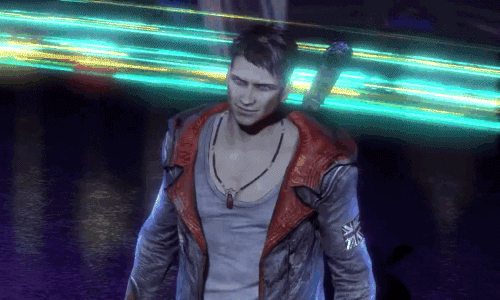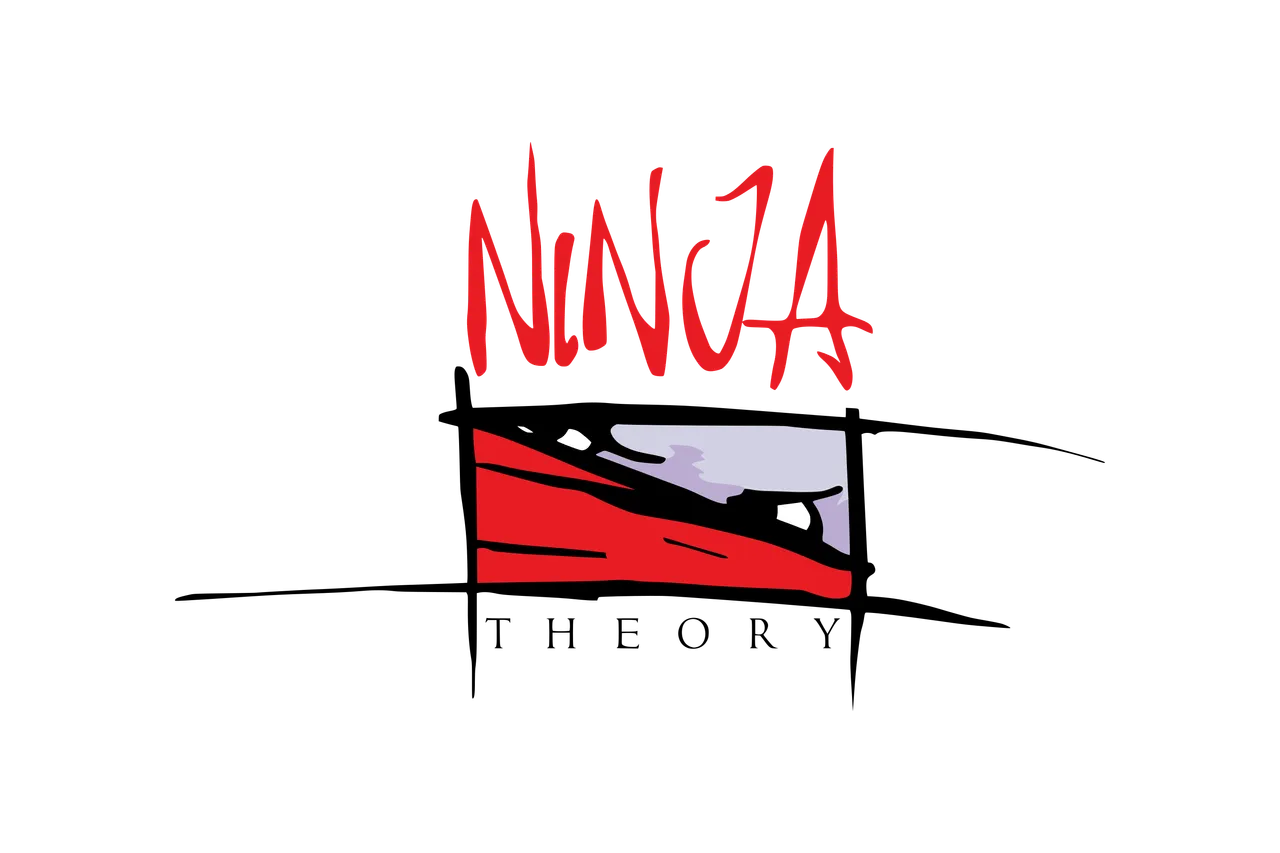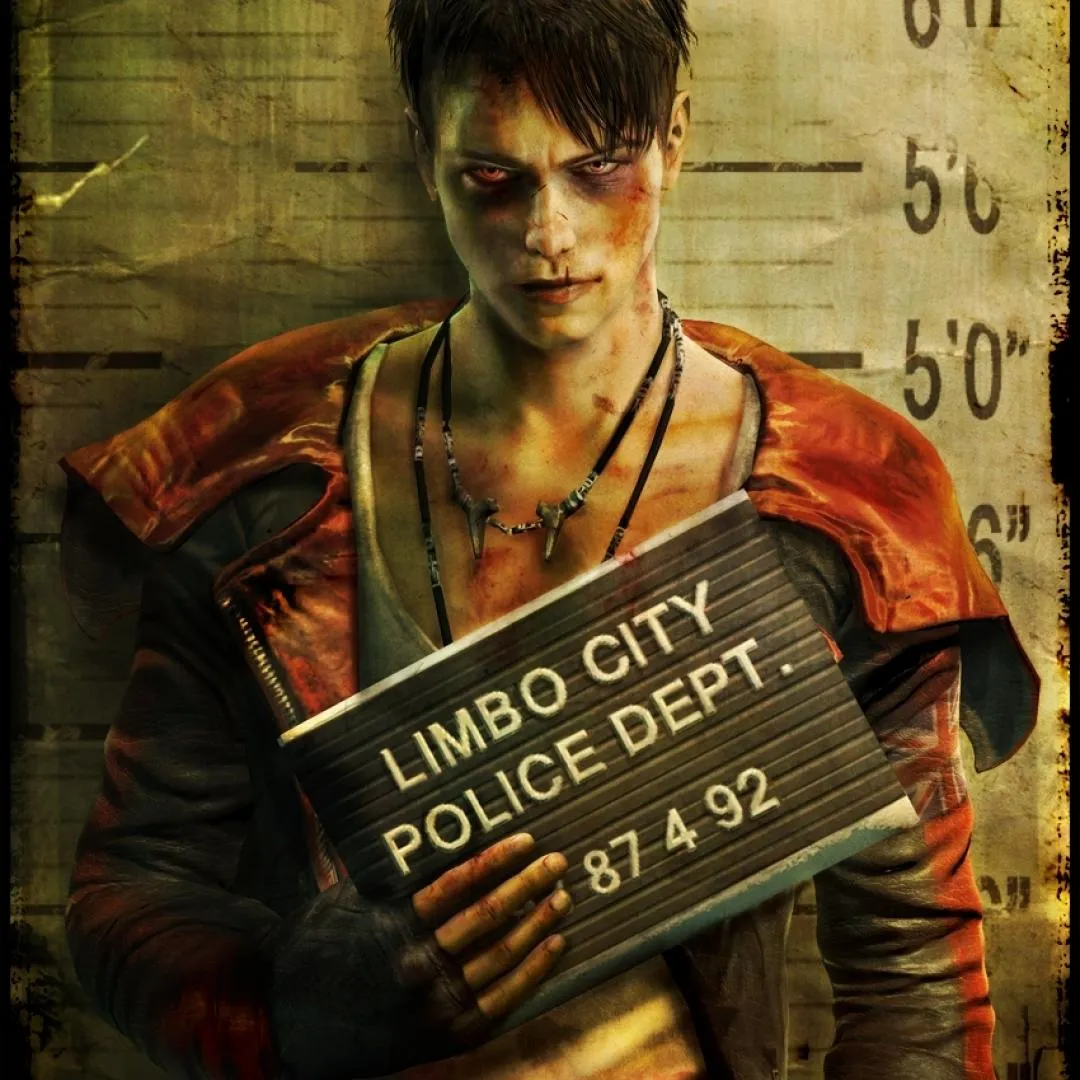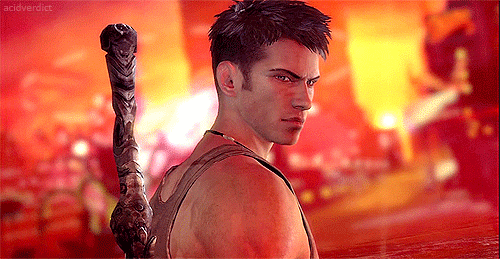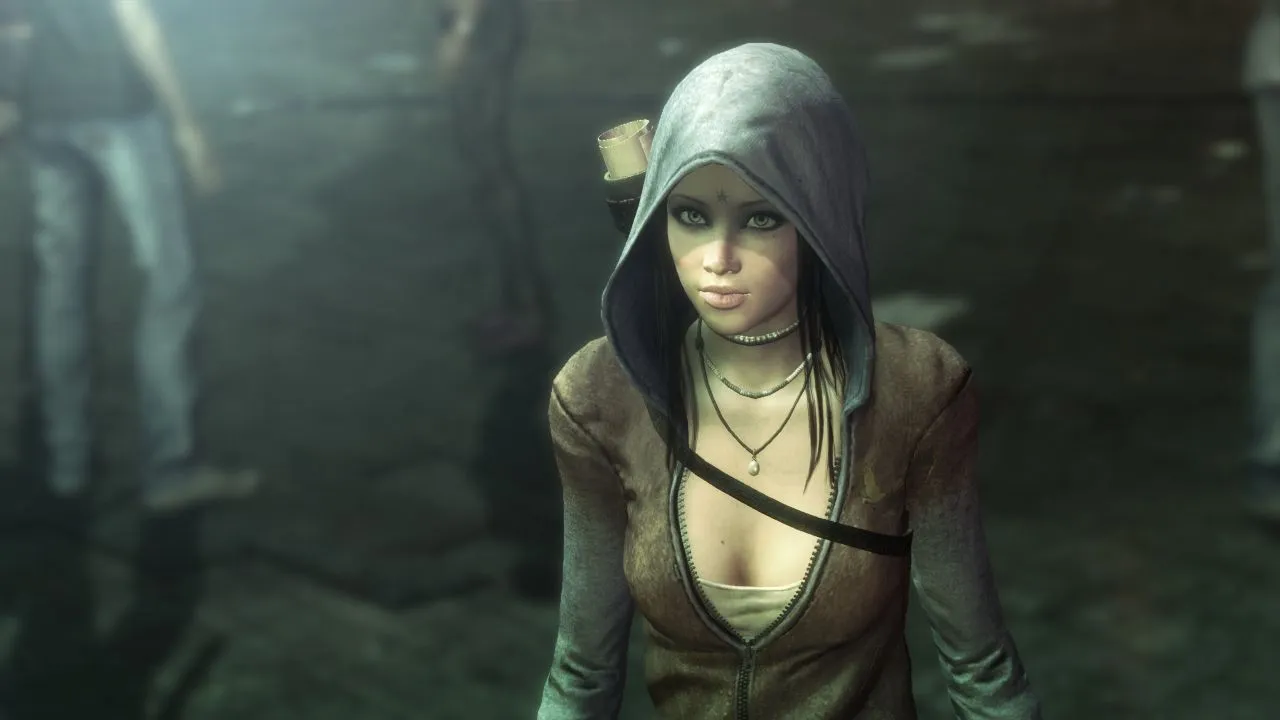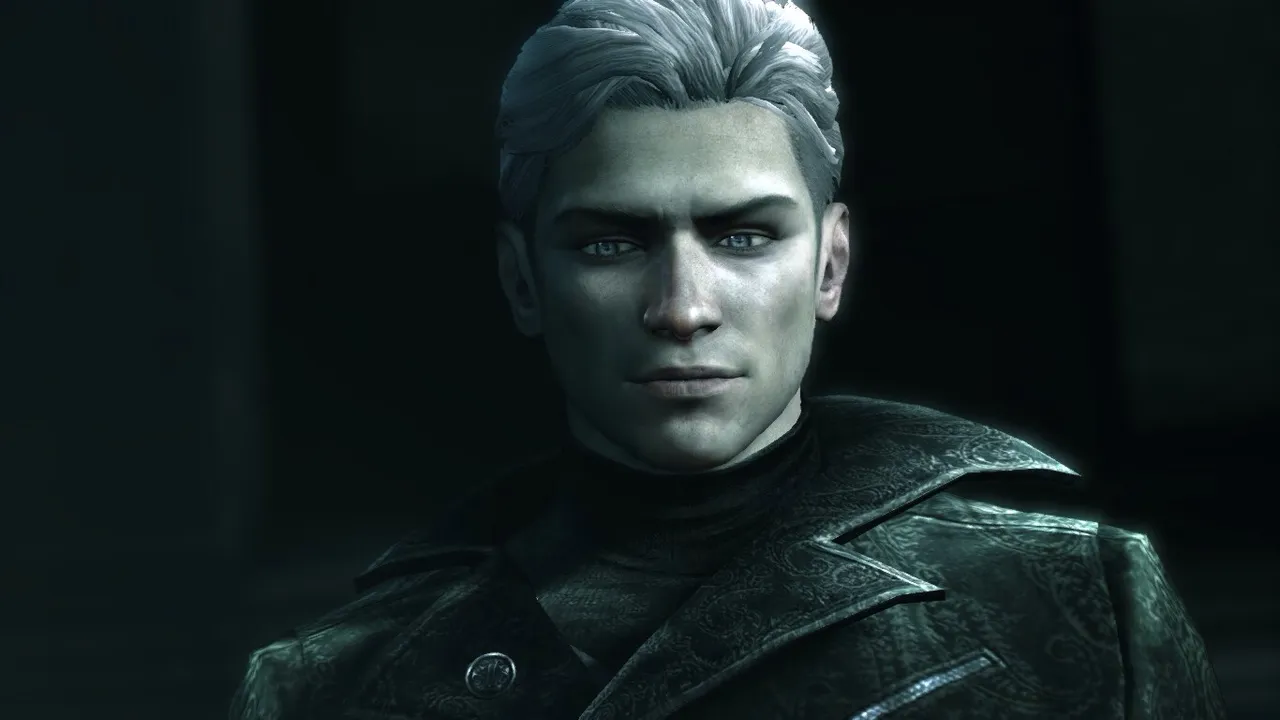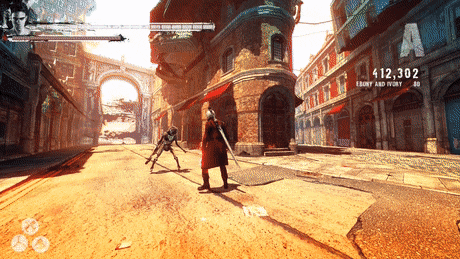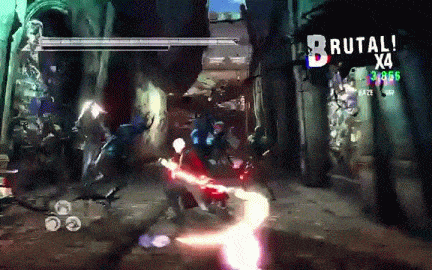English | Inglés
Greetings, Hive!
By 2010 Devil May Cry was already a videogames saga with a significant amount of fans, it had become not only a classic of the consoles’ sixth generation, but it was also the pillar for the creation of the hack-and-slash genre. Frenetic action, high but satisfying difficulty, gothic setting, and one of the most beloved protagonists in the industry were some of the things that identified this franchise. However, in 2010 and after the not so successful Devil May Cry 4, Capcom decided it was time to give a 180 degree change to the series by surprising everyone with a trailer that was presented during the Tokyo Game Show in September of that year. The first thing we saw was a radical change in the aesthetics of the game and also, a character that looked pretty haggard and with an edgy vibe about him, all good until we found out that this character was nothing more and nothing less than Dante ... Protagonist of the saga, and he came with a change of look and personality that would soon explode the internet. But what happened to this game? It’s worthy of all the hate it received? These are good questions because I was among those who hated this game since its announcement, but playing it gave me a very different perspective on it.
So without any further ado, let's start!
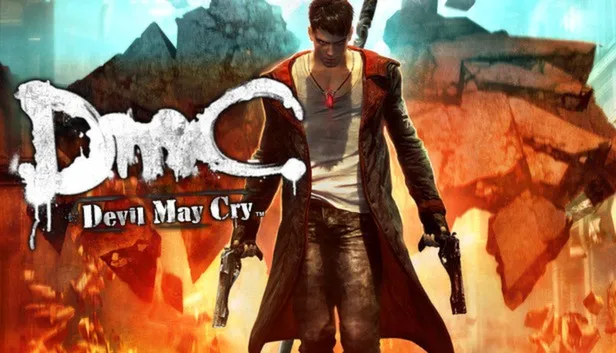
First of all we have to understand the context in which this game exists. The main reason for making a reboot of Devil May Cry was due to Capcom wanted to internationalize the series more and bring it to the western audience, to achieve this Capcom commissioned the work to the English company Ninja Theory. At the beginning of the development the company was trying to stay as close as possible to the original material, however Capcom wanted there to be a complete change in the game’s aesthetics, they wanted it to be something "cool" and "trendy" for early 2010s standards, and as we all know the edgy/emo avengers characters were as cool as it could be, you know, that murky time of our teenage years when "having depression" was cool.
Being Devil May Cry a videogame that is characterized by making us feel badass, plus the demands of Capcom, Ninja Theory was forced to not only reinterpret the whole story and concept of Devil May Cry, but also to do something "cool" by the standards of the time, with a much more westernized narrative in both its characters and its story, giving rise to the controversial DMC: Devil May Cry. After a tortuous development in which many original approaches were changed and a rain of insults (unjustified) to the game and developers, against all odds DMC was released on January 15, 2013 globally and two days later, on January 17, in Japan. The game received good but not outstanding ratings from critics; however from fans it received mostly negative reviews whose main focus was the change in Dante's appearance above anything else.
Devil May Cry has never been characterized by a complex story and this game is no exception; the plot begins showing us a Dante apparently much younger than the one in the original saga, he seems to have a very different lifestyle as it is shown as someone who constantly goes out partying, drinks a lot of alcohol and is very active sexually. Dante is also constantly exposed to the television media who label him as a threat to society. One day, Dante is visited by a girl named Kat who warns him that his life is in danger, then he is attacked by a monster and sent to a place known as "Limbo. After finishing with the demon Kat helps Dante to get out of the Limbo and offers him to meet the leader of an organization that fights against demons, this organization is "The Order" and its leader is Vergil, Dante's twin brother. Vergil asks Dante to join the organization and to join forces to end the demons of Limbo, a request that Dante accepts and thus beginning the adventure.
Under this premise the whole story unfolds, and while it's not bad I don't feel it's precisely good either, I think it stays in a pretty grey area, it misses that Japanese touch in the climatic points of the story and I feel it constantly falls into the cliché of the edgy emo avenger who listens to My Chemical Romance and hates his life, and instead of feeling as something cool it's rather cringe. Something the game does do well (or at least in my opinion) is to give a better story and development to Dante; while at the beginning of the game Dante is quite unconcerned about everything, as we progress his personality gradually changes and he takes more seriously and responsibly the things that are happening, I assume this was exactly what Capcom wanted regarding the westernization of the saga, all this development feels much more like a teen action movie instead of the story of a demon hunter who fears nothing.
Whereas, secondary characters were much less developed and little or nothing we are interested in them, perhaps Kate is the most redeemable but her story is also left in a middle ground, perhaps they wanted to develop it more in a possible sequel, but as things are today with Devil May Cry we know that this is very unlikely to happen. The overall aesthetics of the game also changed a lot, we moved away from that gothic Castlevania style atmosphere to go to a completely punk and grunge essence, you can feel it in the character design, scenery, music, even in the clear message of how we are manipulated by media like television. The concept of the world of Limbo is interesting, Limbo basically would be the hell and the place where demons come from, but this hell is in the same place as the human world but it is a distorted and surreal version of it; demons and humans live together daily but they don't know it.
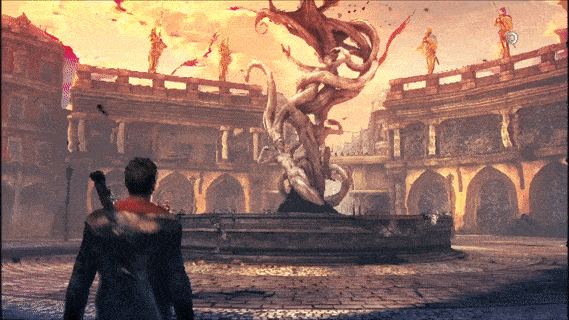
Regarding to the gameplay and combat I have mixed feelings; gameplay is exquisite, the fluidity with which we can chain combos and attacks is incredible besides being much simpler than in previous installments. We will have a total of 5 melee weapons and another pair of firearms to keep the distance with our enemies or to keep our combos’ progress.
The main addition to the combat is the Angelic and Demonic type weapons. If we press the lower left trigger our Rebellion sword will change to Angelic mode, in this mode we can fight using a scythe or a pair of shurikens that will not do a lot of damage but will be very useful to make crowd control and attack very fast; on the other hand, if we press the lower right trigger, Rebellion will transform into a big axe or a pair of fire fists, ideal to do large amounts of damage and break shields, but they will make us much slower and therefore vulnerable. We can freely switch between these 5 weapons giving us a wide variety of combo possibilities, executing big and flashy combos doesn't require much practice and that's exactly one of the criticisms of the game.
The challenge it offers is much less than the one in the original saga, both when it comes to combos execution as in its overall difficulty, it feels like a simplified version of the combat style of Devil May Cry 3 and Devil May Cry 4, although if the original idea of this installment was to reach a much more varied audience is understandable why this decision, I think what is most affected by this decision are the boss fights, besides being very few they are extremely easy and forgettable. The game also includes many more platforming sections that are surprisingly entertaining, especially for the implementation of an angelic hook that will attract us to objects and a demonic hook that will attract objects towards us, giving space for quite interesting puzzles.
The technical aspect works fine most of the time, I have to say that I really like the scenarios’ punk aesthetics and all this is very well accompanied by fairly saturated colors that enhance the surrealism of the situation, the in-game graphics look good but on the contrary cut-scenes leave a lot to be desired, modeling lacks detail and characters face’s expressions are often quite uncomfortable to watch. The music doesn't disappoint and as I said a few lines above, it has a very clear punk and grunge influence that goes very well with the general aesthetics of the adventure, what I do think about its soundtrack is that it lacks some easy to remember emblematic theme because at the end of the game we will forget most of the music we heard.
DMC: Devil May Cry is a bold experiment that had the misfortune of being judged long before it was released, all because it received the fury of the most toxic side of the internet: fandoms. However, I've seen that recently there's a current that tries to revalue this game and give it the dignity it never had, I mean let's face it, DMC: Devil May Cry is a good game. Yes, it's true that its narrative is weak and that it commits a lot of clichés of the time, but who plays Devil May Cry just for its story? I think we have to recognize that this game tried to take the franchise to something a little further than just gameplay, and although it wasn't successful, it has the merit of having tried and besides with such a beloved saga. I think I like this game because it has a very irreverent essence that differentiates it from the others, at the beginning of the game there is a scene where Dante wears a white wig (obviously alluding to the original Dante) and when he sees himself in a mirror with the wig he says: "Not in a million years", it's clearly a mockery not only to the original Dante but to all the fandom that reacted so sickly to the announcement and release of this game. Hating a game just because you don't like the way its protagonist looks seems the dumbest thing in the world to me, please, it's just a video game not real life, and while it's true that video games are one of our greatest passions, we have to know at what point to discern between video game and real life. While I don't mind at all that Capcom decided to return to the original franchise with Devil May Cry V (the only one I haven't played by the way), I'd also like to see this reboot pick up at some point and keep it as a sort of spin-off or alternate universe. At the end of the day DMC: Devil May Cry ended up being a more than pleasant experience and achieved the mission of any good video game: deliver quality entertainment, there are very good things, good things, not so good things, bad things, and very bad things, and this is something that no video game is saved, so if you haven’t tried this installment I recommend that you do not get carried away by those who criticize it without any objectivity and give it a chance and you judge it for yourself.
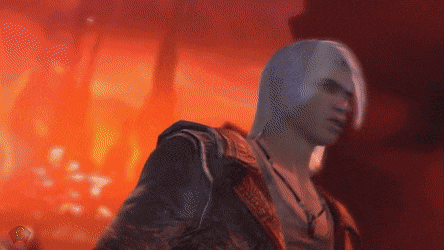
Español | Spanish
¡Saludos, Hive!
Para el año 2010 Devil May Cry ya era una saga de videojuegos con una importante cantidad de fanáticos, se había convertido no solo en un clásico de la sexta generación de consolas, sino que además fue el pilar para la creación del género hack-and-slash. Acción frenética, dificultad alta pero satisfactoria, ambientación gótica, y uno de los protagonistas más queridos de la industria eran algunas de las cosas que identificaban a esta franquicia. Sin embargo, en el año 2010 y después del no tan exitoso Devil May Cry 4, Capcom decidió que era hora de darle un cambio de 180 grados a la saga sorprendiendo a todos con un tráiler que presentaron durante el Tokyo Game Show en septiembre de ese año. Lo primero que vimos fue un cambio radical en la estética del juego y además, un personaje que se veía bastante demacrado y con una onda bastante edgy sobre él, todo bien hasta que nos enteramos que este personaje era nada más y nada menos que Dante… Protagonista de la saga que venía con un cambio de look y personalidad que no tardaría en hacer estallar el internet. Pero, ¿Qué pasó con este juego? ¿Es merecedor de todo el hate que recibió? Son buenas preguntas porque yo estuve incluido entre quienes detestaron a este juego desde su anuncio, pero jugarlo me dio una perspectiva muy distinta del mismo.
Así que sin más preámbulos, ¡comencemos!

Primero que nada tenemos que entender el contexto en el que existe este juego. La razón principal de hacer un reboot de Devil May Cry fue porque Capcom quería internacionalizar más la saga y llevarla al público de occidente, para lograr esto Capcom le encargó el trabajo a la compañía inglesa Ninja Theory. Al comienzo del desarrollo la compañía estaba tratando de mantenerse lo más adherida posible al material original, sin embargo Capcom quería que hubiese un cambio completamente en la estética del juego, querían que fuese algo “cool” y “a la moda” para estándares de principios de los 2010s, y como todo sabemos los personajes edgy/emos vengadores era lo más cool que podía haber, ya saben, esa época turbia de nuestra adolescencia en la que “tener depresión” era genial.
Siendo Devil May Cry un videojuego que se caracteriza por hacernos sentir badass, más las exigencias de Capcom, Ninja Theory se vio obligado a no solo reinterpretar toda la historia y concepto de Devil May Cry, sino también a hacer algo “cool” para los estándares de la época, con una narrativa mucho más occidentalizada tanto en sus personajes como en su historia, dando origen al polémico DMC: Devil May Cry. Después de un desarrollo tortuoso en el que se cambiaron muchos planteamientos originales y una lluvia de insultos (injustificada) al juego y los desarrolladores, contra todo pronóstico DMC salió a la venta el 15 de enero del 2013 globalmente y dos días después, el 17 de enero, en Japón. Por parte de la crítica especializada el juego recibió calificaciones buenas sin llegar a ser sobresaliente, sin embargo por parte de los fans recibió críticas mayormente negativas cuyo principal foco era el cambio de apariencia de Dante más que cualquier otra cosa.
Devil May Cry nunca se ha caracterizado por una historia compleja y este juego no es la excepción; la trama comienza mostrándonos a un Dante aparentemente mucho más joven que el de la saga original, este parece tener un estilo de vida muy distinto ya que se le muestra como alguien que sale constantemente de fiesta, bebe mucho alcohol y es muy activo sexualmente. Dante también es expuesto constantemente a los medios televisivos quienes lo catalogan como una amenaza para la sociedad. Un día, Dante es visitado por una chica llamada Kat quién le advierte que su vida corre peligro, acto seguido es atacado por un monstruo y enviado a un lugar conocido como el “Limbo”. Después de acabar con el demonio Kat ayuda a Dante a salir del Limbo y le ofrece conocer al líder de una organización que pelea contra los demonios, dicha organización es “La Orden” y su líder es Vergil, hermano gemelo de Dante. Vergil le pide a Dante que se una a la organización y que unan fuerzas para acabar con los demonios del Limbo, petición que Dante acepta y dando así inicio a la aventura.
Bajo esta premisa se desarrolla toda la historia, que si bien no es mala tampoco siento que sea precisamente buena, creo que se queda en una zona bastante gris, se echa de menos ese toque Japonés en los puntos climáticos de la historia y siento que constantemente cae en el cliché de emo vengador edgy que escucha My Chemical Romance y odia su vida, y en lugar de sentirse como algo cool mas bien da bastante cringe. Algo que el juego si hace bien (o al menos en mi opinión) es darle una mejor historia y desarrollo a Dante; si bien al principio del juego Dante se muestra bastante despreocupado por todo, a medida que avanzamos su personalidad va cambiando poco a poco y se toma con más seriedad y responsabilidad las cosas que están pasando, asumo que esto era exactamente lo que Capcom quería respecto a la occidentalización de la saga, todo este desarrollo se siente mucho más como el de una película de acción para adolescentes en lugar de la historia de un cazador de demonios que no le teme a nada.
Por su parte los personajes secundarios estuvieron mucho menos logrados y poco o nada nos interesamos por ellos, quizás Kate es la más rescatable pero su historia también se queda en un punto medio, quizás querían desarrollarla más en una posible secuela, pero tal y como están las cosas hoy en día con Devil May Cry sabemos que esto es muy improbable que esto pase. La estética general del juego también cambió mucho, nos alejamos de ese ambiente gótico al estilo de Castlevania para ir a una esencia completamente punk y grunge, se siente tanto en el diseño de personajes, escenarios, música, hasta en el claro mensaje de cómo nos manipulan medios como la televisión. El concepto del mundo del Limbo es interesante, el Limbo básicamente vendría siendo el infierno y el lugar de dónde vienen los demonios, pero este infierno se encuentra en el mismo lugar que el mundo humano solo que es una versión distorsionada y surrealista de este; los demonios y humanos conviven diariamente pero no lo saben.

Con respecto a la jugabilidad y el combate tengo sentimientos mixtos; la jugabilidad es exquisita, la fluidez con la que podemos encadenar combos y ataques es increíble además de ser mucho más sencillo que en entregas anteriores. Contaremos con un total de 5 armas de combate cuerpo a cuerpo y otro par de armas de fuego para mantener la distancia con nuestros enemigos o el progreso de nuestros combos.
El principal añadido al combate son las armas de tipo Angelical y tipo Demoniaco. Si presionamos el gatillo inferior izquierdo nuestra espada Rebellion cambiará al modo Angelical, en este modo podremos pelear usando una guadaña o un par de shurikens que no harán gran cantidad de daño pero serán muy útiles para hacer crowd control y atacar muy rápido; por otra parte, si presionamos el gatillo inferior derecho, Rebellion se transformará en un gran hacha o un par de puños de fuego, ideales para hacer grandes cantidades de daño y romper escudos, pero nos harán mucho más lentos y por lo tanto más vulnerables. En todo momento podremos cambiar libremente entre estas 5 armas dándonos gran variedad de posibilidades de combos, ejecutar combos grandes y vistosos no requiere mucha práctica y esa es justamente una de las críticas del juego.
El reto que ofrece es mucho menor con respecto al de la saga original, tanto a la hora de ejecutar combos como en su dificultad general, se siente como una versión simplificada del estilo de combate de Devil May Cry 3 y Devil May Cry 4, aunque si la idea original de esta entrega era alcanzar a un público mucho más variado es entendible por qué de esta decisión, creo que lo que se ve más afectado por esta decisión son las peleas contra jefes, que además de ser muy pocas resultan extremadamente fáciles y poco entretenidas. Asimismo el juego incluye muchas más secciones de plataformeo que resultan sorprendentemente entretenidas, sobre todo por la implementación de un gancho angelical que nos atraerá hacia los objetos y un gancho demoníaco que atraerá los objetos hacia nosotros, dando espacio para puzles bastante interesantes.
El aspecto técnico cumple la mayoría de las veces, tengo que decir que me gusta mucho la estética punk de los escenarios y todo esto va muy bien acompañado de colores bastante saturados que realzan el surrealismo de la situación, los gráficos in-game se ven bien pero por el contrario las cinemáticas dejan bastante que desear, los modelados carecen de detalles y las expresiones de los personajes suelen ser bastante incómodas de ver. La música no decepciona y como dije hace unas líneas arriba, tiene una clarísima influencia punk y grunge que acompaña muy bien la estética general de la aventura, lo que sí creo es que a la música le falta algún tema emblemático que sea fácilmente recordable porque al terminar la partida nos olvidaremos de la mayoría de la música que escuchemos.
DMC: Devil May Cry es un experimento atrevido que tuvo la mala fortuna de ser juzgado mucho antes de que saliera a la venta, todo porque recibió la furia del lado más tóxico del internet: los fandoms. No obstante he visto que recientemente hay una corriente que trata de revalorizar este juego y darle la dignidad que nunca tuvo, porque hay que admitirlo, DMC: Devil May Cry es un buen juego. Sí, es verdad que en su narrativa se queda flojo y que peca de cometer muchos clichés de la época, ¿pero quién juega Devil May Cry solo por su historia? Creo que más bien hay que reconocer que este juego trato de llevar la franquicia a algo un poco más allá de solo gameplay, y aunque no fue exitoso, tiene el mérito de haberlo intentado y además con una saga tan querida. Creo que este juego me gusta porque tiene una esencia bastante irreverente que lo diferencia de los demás, al principio del juego hay una escena en la que a Dante le cae encima una peluca blanca (haciendo alusión obviamente al Dante original) y al verse en un espejo con la peluca dice: “Ni en un millón de años”, es claramente una burla no solo al Dante original sino a todo el fandom que reaccionó de manera tan enfermiza ante el anuncio y salida de este juego. Odiar a un juego solo porque no te gusta la apariencia de su protagonista me parece lo más tonto del mundo, por favor, es solo un videojuego no la vida real, y si bien es verdad que los videojuegos son una de nuestras pasiones más grandes, tenemos que saber en qué momento discernir entre el videojuego y la vida real. Y aunque no me molesta para nada que Capcom haya decidido volver a la franquicia original con Devil May Cry V (el único que no he jugado por cierto), también me gustaría que en algún momento se retomara este reboot y se mantenga como una especie de spin-off o universo alterno. Al final del día DMC: Devil May Cry terminó siendo una experiencia más que agradable y que logró el cometido de cualquier buen videojuego: entregar entretenimiento de calidad, hay cosas muy buenas, cosas buenas, cosas no tan buenas, cosas malas, y cosas muy malas, y de esto es algo que ningún videojuego se salva, así que si no has probado esta entrega te recomiendo que no te dejes de llevar por quienes lo critican sin ningún tipo de objetividad y le des una oportunidad y puedas juzgarlo por ti mismo.

I think DMC: Devil May Cry will always be remembered as one of the most controversial games in the industry even long before its release, I don't know if this played for or against Capcom, because although this game didn't have the best sales (in fact, it sold 40% less than expected), its existence catapulted the sales and reception of Devil May Cry V. What about you? What do you think about this game? Did you hate it from the beginning or, on the contrary, did you give it a chance?
Creo que DMC: Devil May Cry siempre será recordado como uno de los juegos que más polémica han creado en la industria incluso desde mucho antes de su lanzamiento, y no sé si esto le jugó en favor o en contra a Capcom, porque si bien esta entrega no tuvo las mejores ventas (de hecho, vendió 40% menos de lo esperado), su existencia catapultó las ventas y recepción de Devil May Cry 5. ¿Y tú? ¿Qué piensas de este juego? ¿Lo odiaste desde el principio o por el contrario, le diste una oportunidad?
Thank you so much for reading me, see ya next post! | ¡Muchas gracias por leerme, nos vemos en el siguiente post!
